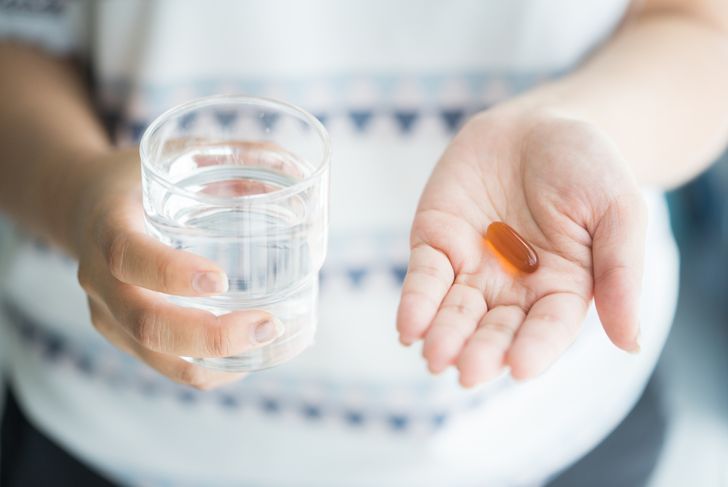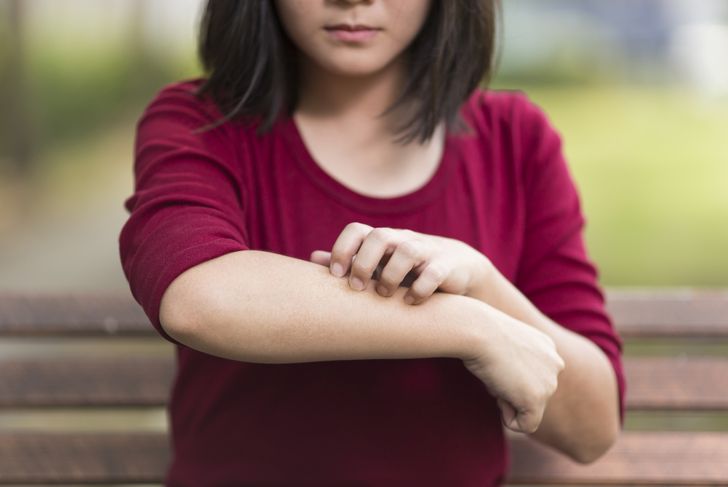Celiac disease is an autoimmune disorder that causes the body to attack the small intestine and eat away any gluten that is present. Gluten is a protein found in rye, wheat, and barley. The most common symptom is diarrhea associated with bloating and gas. Fatigue, anemia, and osteoporosis are other signs of the gluten allergy. Some people do not notice any symptoms; however, over time, the lining of the small intestine becomes damaged, which leads to other health problems. Not only that, but your body can no longer absorb particular nutrients causing malabsorption. There are several ways to help treat the symptoms of celiac disease. Even though most involve self-care at home, it is important to discuss your treatment options with a doctor.
Stick to a Gluten-Free Diet
The most effective way to manage the symptoms of celiac disease is to follow a gluten-free diet. Not only will the lack of gluten give your small intestine’s time to heal, but it can prevent future inflammation. However, it can be tricky to live a life with this strict diet. Even though you can consume gluten-free foods at home, it may be more difficult to find food without wheat or wheat flour on the go. You need to stay away from oats, barley, rye, spelt, malt, semolina, graham flour, durum, and farina. While that might sound like a foreign language to you, steering clear of bread might seem easy. However, gluten is a traditional ingredient in pasta, yogurt, luncheon meats, and canned soups. Condiments including salad dressings, soy sauce, mustard, and ketchup all have gluten. Ice cream, candy bars, and instant coffee also contain the protein, sadly.Eating a diet with fruits, vegetables, and healthy meats is recommended. Make sure you check the label on any foods you purchase. You can discover brands that are gluten-free, but make sure you research the claim. The more processed and unnatural the food, the more likely chance it includes gluten. Preservatives, food stabilizers, and modified food starch (for certain kinds of potatoes) might come in the form of gluten.
Schedule Follow-Up Care
If you need help adjusting to a gluten-free diet, you can enlist the expertise of a dietitian. He or she can help you learn more about healthy, nutritious meals that are also free of gluten. Besides seeing a dietitian, you will need follow-up care with your family doctor to monitor your body’s response to the gluten-free diet. You may have to take blood tests for several months to evaluate the presence of gluten in your small intestine. After about six months to a year of following a gluten-free diet, the tests should become negative. However, even with a negative test result, you still can experience signs of celiac disease. If the symptoms continue to occur, then your doctor might want to do complete an endoscopy with a biopsy to ensure proper healing. Routine biopsies are required if healing is slow.
Avoid Other Gluten Products
Besides food, gluten is also used in a variety of random products. For example, toothpaste and mouthwash might contain the unique protein. Certain prescriptions and over-the-counter medications, as well as vitamins and herbal supplements, use gluten as a binding agent for capsule pills and tablets. Gluten is common in lipstick, Play-Doh, and stamp glue. If you have Celiac disease, you should avoid these gluten products.
Take Vitamin and Mineral Supplements
Depending on the severity of your condition, you may have to treat the symptom of malabsorption. Your doctor will recommend you take vitamins and minerals to replace the nutrients you are lacking. Iron, calcium, fiber, zinc, magnesium, and folate are just a few minerals that need a boost. Your body may have trouble absorbing vitamin B-12, vitamin D, and vitamin K, too. Even after the lining of the small intestine is healed, you might have to continue taking vitamins and minerals because a strict gluten-free diet can lack in complete nutrition. Before you start taking any supplements, make sure you talk to your doctor to find a multivitamin that does not use gluten as the binding agent.
Ask About Medication
Although there is no medication available to cure Celiac disease, you can take anti-inflammatory medication to help control the intestinal inflammation. Steroids, for example, can ease even severe symptoms of celiac disease as your small intestines recover. You can talk to your doctor about possible anti-inflammatory prescriptions that are available for this autoimmune disorder.
Try Fish Oil
This is more of a holistic treatment for celiac disease, but fish oil has been used to treat health conditions for centuries. Fish oil can coat the lining of your small intestine to protect it from inflammation. Therefore, if you willingly or accidentally consume gluten, you might not have to deal with the painful flare-ups as much as you would otherwise.
Learn About Herbal Treatments
Other at-home remedies that can help with celiac disease include an assortment of herbal treatments. Goldenseal and olive leaf extract are ideal for autoimmune disorders because they not only protect the immune system from disease but help regulate it. If you take them on a regular basis, especially if you do not follow a gluten-free diet, they can help lessen the severity of the symptoms of celiac disease. Chamomile is another herb that can help; so is horsetail tea even though it is technically not an herb. They both are known to reduce intestinal inflammation, soothe an upset stomach, and strengthen the digestive system.
Start Papain Supplements
With all of the medical technology available, there is a supplement that can help enzymes in the small intestine identify gluten properly. Therefore, instead of your immune system eating the gluten to attack it, they can pass through your system normally. These supplements are called papain and are available at health food stores across the nation. Discuss papain supplements with your doctor before adding them to your daily lifestyle. If you want to consume gluten, these can help you eat with confidence. However, like the other celiac disease treatments, they will not cure the disorder but only ease the symptoms.
Treat Dermatitis Herpetiformis
Celiac disease can cause an itchy rash. The skin condition is known as dermatitis herpetiformis or during disease. The exact cause is unknown, but the gluten allergy along with other autoimmune disorders can lead to a bumpy, recurring rash. Just as your doctor has to treat malabsorption, you will need a prescription to combat this itchy symptom. Creams like Dapsone are recommended along with a gluten-free diet.
Go to the Emergency Room
If you have refractory celiac disease, then your small intestine lining needs immediate medical attention. When it reaches this severe condition, there is no amount of at-home treatment or preventative care that can help. Emergency doctors will most likely develop a series of steroid therapy including topical budesonide or prednisone. Your physician may also be required to prescribe medication to help you cope with the urgent condition.

 Home
Home Health
Health Diet & Nutrition
Diet & Nutrition Living Well
Living Well More
More




















